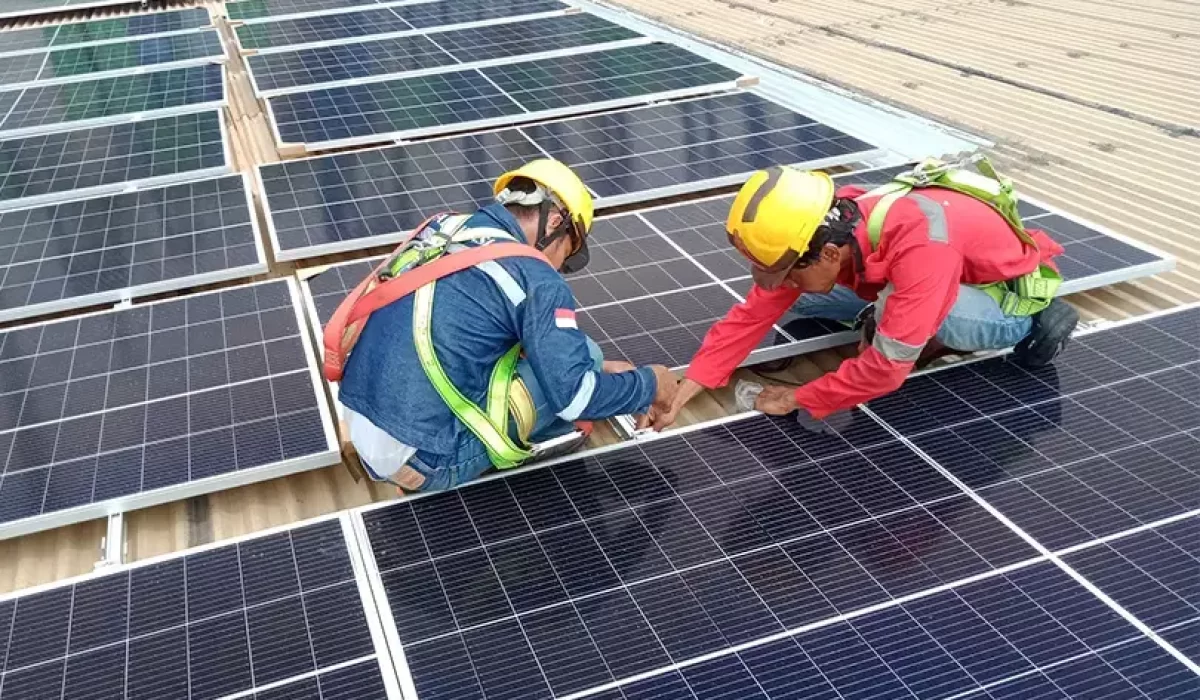Utilizing Solar Energy: A Solution to Save the World
Solar energy is the process of generating heat from sunlight. It is a clean, renewable, and non-polluting source of energy that powers muchof the world. Solar energy has been around for centuries but has only recently gained popularity. In fact, solar energy did not become popular until the 1970s when oil prices skyrocketed and people began to realize that solar energy could be an alternative to fossil fuels and nuclear energy.
Solar energy is important to humans because it can reduce air pollution and provide clean energy on demand. It also provides a way for individuals to reduce their carbon footprint by using solar panels or other renewable technologies. Additionally, the process of harnessing solar energy does not produce harmful by-products and is considered more environmentally friendly.
Solar energy can be used in many ways, from residential settings to commercial ones. Solar panels are typically installed on rooftops with the help of solar panel mounting brackets. The panels are mounted to the brackets using flexible mounting bars, which are then connected to an inverter that channels electricity to the grid or for use in your home. The inverter is what converts the direct current (DC) from the solar panels into alternating current (AC) that is compatible with household appliances such as TVs, microwaves, and computers.
Solar energy is a clean and renewable source of energy that is becoming increasingly popular around the world. It provides an alternative to fossil fuels such as coal, natural gas, and oil. Solar energy has been used for thousands of years, but it was only in the 19th century that the first solar panels were used to generate electricity. Only in the last few decades has solar energy become a viable alternative to fossil fuels. Solar energy has many benefits including lower costs, less pollution, and no greenhouse gas emissions.
The use of solar power plants also reduces carbon footprint and helps prevent the worsening of climate change. Solar power plants can be used in homes, businesses, and communities to significantly reduce greenhouse gas emissions. It has been found that solar energy consumption has increased by 50% since 2007.
The benefits of solar power plants are:
First, solar energy is a popular energy source because it is free and renewable. Solar energy does not emit carbon or other harmful chemicals into the air. In fact, the use of solar panels does not produce any radiation and is environmentally friendly as it does not require any special land to work.
Second, the use of solar energy is increasing worldwide. Solar energy is a renewable energy source that can be used to reduce dependence on fossil fuels such as oil and coal. Solar energy is an important alternative to traditional energy sources such as coal, oil, and natural gas. Utilizing solar energy means reducing dependence on fossil fuels such as oil and coal.
Third, the use of solar power plants has increased in recent years. Solar power plants typically consist of large solar panels that can generate electricity at a much cheaper cost than traditional sources.
Fourth, solar power plants have become a popular choice for homeowners who want to trim their monthly electricity bills. Many homes can generate their own electricity using solar power plants, reducing their monthly electricity bills by as much as 70%.
The world is moving quickly towards renewable energy sources. While the transition to renewable energy sources is still underway, it is already beginning to have a significant impact on the environment and the world.


